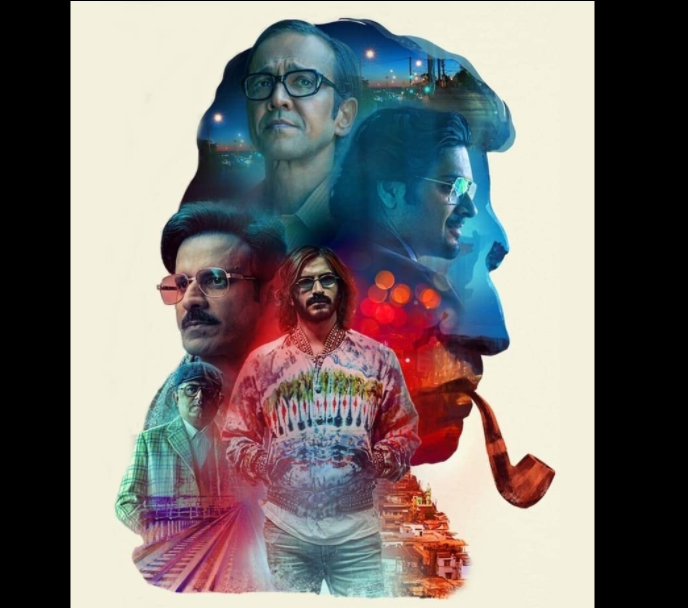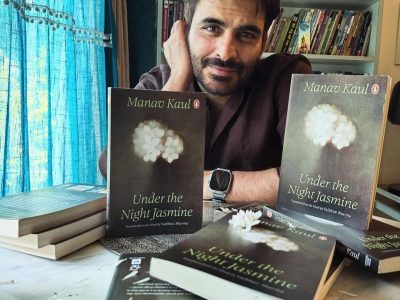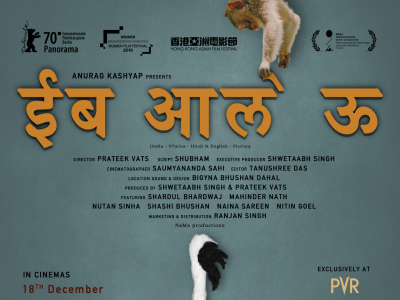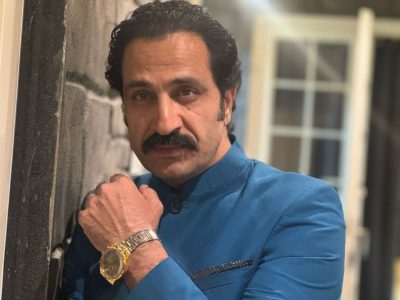The modern retelling of legendary filmmaker Satyajit Ray’s short stories in Netflix’s Ray is lost in translation, but shines in parts
There’s no two ways about it that it takes an immensely talented individual to create a masterpiece. But to deconstruct a “master’s piece” and present it to the audience in a different time period, in a new avatar – takes a genius!
This could be the reason why for ages, legendary filmmaker Satyajit Ray’s works, after his passing away, remained untouched. Only few attempted to retell or revisit his films or stories for adaptation.
But Bollywood boldly ventured into that territory, and to pay tribute to the maestro – it went a notch higher by adapting not one, but four of his stories.
Ray is an anthology mini-series which is helmed by filmmakers Srijit Mukherjee, Vasan Bala and Abhishek Chaubey. These four stories are a modern retelling of Ray’s tales – Forget Me Not (source: Bipin Chowdhury-r Smritibhrom), Bahurupiya (Source: Bahurupi), Hungama Hai Kyon Barpa (Source: Barin Bhowmik-er Byaram) and Spotlight (Source: Spotlight).
The films, each of which is around an hour long, have one theme in common, that of ‘identity.’ The protagonists in these shorts are undergoing an identity crisis of sorts – and their desire to seek their authentic selves lead them to a life-changing journey.
Forget Me Not, directed by Mukherjee, is a dark tale of vengeance. The story revolves around Ipsit Rama Nair (Ali Fazal), who is a young, successful entrepreneur with the “memory of a computer.” Nair is a man who seems to have wronged many. He is promiscuous, selfish and arrogant. His picture-perfect life turns upside down when his memory seems to fade. His inner demons engulf him into a dark pit, from which he tries to escape, but will he be able to?

The anxiousness and helplessness that Nair goes through in the film is palpable and engaging, yet unsettling. Fazal, here, does a fine job. He acts really well – and even the smallest of details, from his dialect to his body language, finds expression in his depiction of Nair.
The story begins on the right foot, but unfortunately the climax appears gibberish. Logic and reasoning take a backseat towards the end of the film. The twist, in a modern-day world, seems out of place.
In Bahurupiya, Mukherjee redeems himself to some extent. This Kay Kay Menon starrer short retells a compelling story of a make-up artist who lives a miserable life. Life, however, gives Indrashish (Menon) a second chance. With the wealth and a book that he inherits from his grandmother after her demise, he gains the power he has been yearning for.
But when a man thinks of himself as God, can any good come of it?
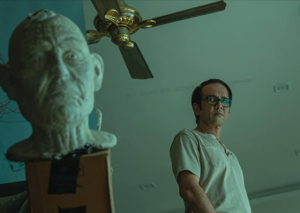
Set in Kolkata, the film is dark and gory. Few scenes might remind you of Joaquin Phoenix’s Joker. Only if the narrative had been that flawless. Menon’s acting was, as always, perfect. But he seemed to have been underused, just like in Bollywood as well, in this otherwise intriguing tale – which got lost in translation.
For anthologies, the best one is often placed in the last or second last. Though it might be just a coincidence, for Ray – that has been the case. Abhishekh Chaubey’s Hungama Hai Kyon Barpa, starring Manoj Bajpayee and Gajraj Rao, is the finest of the lot.
The story, which originally was supposed to be a compartment drama, engages the audience with its humour, wit and magnificent narrative style. Chaubey has used his imagination to deconstruct the original tale and retold it in such a way that it shines with brilliance.
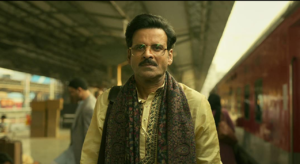
The tale is that of a life-altering encounter between two strangers – a ghazal singer Musafir Ali (Bajpayee) and a sports journalist Aslam Baig (Gajraj Rao) in a train compartment. The camaraderie between the talented actors, Bajpayee and Rao, is wonderfully captured. Bajpayee is brilliant – as always – but owns up his space in this satirical drama like no other! This one story remains with you long after the film’s over.
The last one, Vasan Bala’s Spotlight, starring Harsh Varrdhan Kapoor, is a retelling which seems to have gone too far – so much so that it appears something like a remix! The attempt to retell Ray’s story in a trippy, urban set up with a superstar named Vikram, who questions himself after a cult leader grabs all the limelight while he goes for a film shoot, is entertaining at the outset.
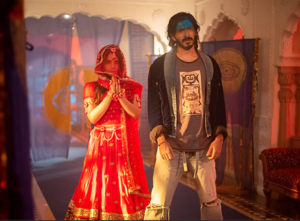
But it all makes little to no sense in the climax. The frivolity of fame, religion and many such other sub-context is not explored well in such a short time frame, and thus appears as a mishmash.
Kapoor’s comic timing and styling is appealing, but he lacks the persona of a star. And his acting falls flat in emotionally charged scenes. However, his co-actor Chandan Roy Sanyal (who plays Roby) gives a worthy performance, and so does Radhika Madan (as Didi).
(Ray is now streaming on Netflix)
(Cover: Credit – Imdb.com)

